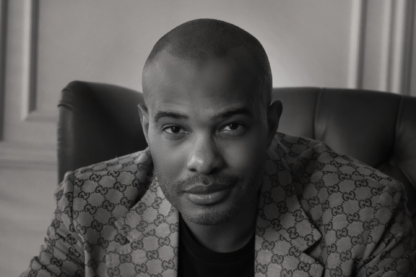By Abhay Gupta — Founder & CEO, Luxury Connect LLP | Top 100 Global Voices in Luxury
Some years ago, during a private visit to a legacy European maison, I asked a brand steward what they considered the most important quality of luxury. Their answer surprised me: “Restraint. True luxury knows when not to speak.”
At the time, I admired the subtlety. But today, as I observe the complex crises shaping our world, I wonder if that restraint — that elegant silence — is still enough.
The Unspoken Dilemma
Luxury has long prided itself on timelessness. While the world spins in turmoil, luxury endures — seemingly untouched by politics, conflict, or disruption. Its focus remains on beauty, craftsmanship, and aspiration.
But we live in a world where silence, too, is interpreted. And increasingly, luxury’s selective voice is becoming more visible than its design.
The Global Conscience Gap
When Russia invaded Ukraine, luxury brands responded swiftly. Major houses suspended operations, closed stores, and issued statements in solidarity. It was seen as a rare moment of values-aligned leadership.
Yet in other conflicts — in Gaza, Sudan, Myanmar, or even the tragic loss of innocent lives to terror in regions like Kashmir — the response has often been absent, muted, or inconsistent.
This is what I call the “conscience gap” — the widening space between a brand’s ethical positioning and its public posture across different global crises.
In an increasingly interconnected marketplace, selective morality can feel louder than moral clarity.
Why This Matters Now
Today’s luxury consumer — whether in Mumbai or Milan, Dubai or New York — is more culturally attuned, emotionally aware, and digitally connected than ever before. They don’t just buy the product. They buy the values.
And when those values appear situational — loud in one region, quiet in another — it erodes trust, especially in emerging and fast-growing markets where cultural parity is becoming a critical expectation.
India, for example, is projected to become a $200 billion luxury market by 2030. Its consumers are aspirational, discerning, and deeply aware of global dynamics. But more than anything, they want to be seen — not just as customers, but as voices worth listening to.
Luxury Is Not Apolitical — It’s Cultural
Let’s be clear: no one expects luxury brands to act as geopolitical actors. But brands that sell identity, emotion, and heritage cannot claim to be culturally neutral.
To remain relevant in a world shaped by Gen Z ideals, cross-border empathy, and post-pandemic consciousness, luxury must embrace ethical fluency — knowing when, how, and why to speak.
Conscience, when practiced consistently and thoughtfully, becomes a brand advantage — not a risk.
Strategic Conscience: What It Can Look Like
So, what does a values-aware luxury strategy look like?
– Acknowledgment without partisanship: A simple statement of support for peace, safety, or shared humanity
– Localized compassion: Supporting relief efforts or NGOs in affected markets
– Cultural sensitivity in design and casting: Ensuring brand ambassadors reflect diversity in dignity, not tokenism
– Internal alignment: Empowering regional teams to respond when appropriate — rather than deferring to HQ silence
In today’s climate, elegance must include emotional intelligence.
A Moment for Global Leadership
This is also a moment for luxury voices from the Global South — including India, the Middle East, and Africa — to step forward.
We don’t just bring craftsmanship. We bring context. We understand the nuance of silence, the politics of inclusion, and the importance of being seen.
For Indian luxury, in particular, this is an invitation to lead: to demonstrate that conscience and commerce need not be mutually exclusive.
Final Thought
Luxury is still about aspiration. But the nature of aspiration has changed.
Today, aspiration includes belonging, justice, and being heard.
If luxury wants to remain a symbol of not just what we wear — but who we are — it must step into a more courageous kind of elegance: one that knows when to speak, when to listen, and when silence is no longer neutral.
Because in the end, what we stand for may matter more than what we sell.
—
Abhay Gupta is Founder & CEO of Luxury Connect LLP and LCBS. Named among the World’s Top 100 Voices in Luxury, he writes at the intersection of culture, commerce, and conscience.
Disclaimer: The views expressed in this article are those of the author and do not necessarily reflect the official stance of the World Luxury Chamber of Commerce, its affliates, or any brands/entities mentioned. This piece is intended to foster constructive dialogue on the evolving relationship between luxury, ethics, and global responsibility.





